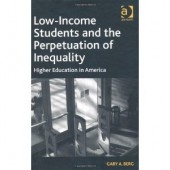For-profit colleges have had their share of negative attention lately, with a Democratic Senate committee calling for tougher oversight and regulation, and reports focusing on the excessive debt their students incur.
That’s one reason why it was refreshing to read the comments of Gary Berg, the author of Low-Income Students and the Perpetuation of Inequality, in a Q&A posted on InsideHigherEd. Berg made the point that all of higher education can learn from the way for-profit schools serve students from low-income families. Berg is a dean of extended education at California State University Channel Islands, and his book explores how higher education should and could do a better job of helping economically disadvantaged students.
He was asked if he sees the burgeoning popularity of for-profit schools as “generally a good thing for low-income students,” and replied as follows:
“The public universities with their access missions have a special responsibility to serve students from low-income families, and can gain from observing the for-profits. Many of the for-profits pay special attention to providing clear pathways for first-generation college students both in terms of psychological self-esteem issues and the practical aspects of attending college while working and raising families … over all, for-profit institutions are painfully aware of the fact that traditional universities have an enormous competitive advantage in academic reputation and understand that they have to work hard to recruit and keep students. I think in the long run those from the for-profit sector that are good competitors, both ethical and effective, will benefit all.”
The rest of the Q&A is accessible here.




